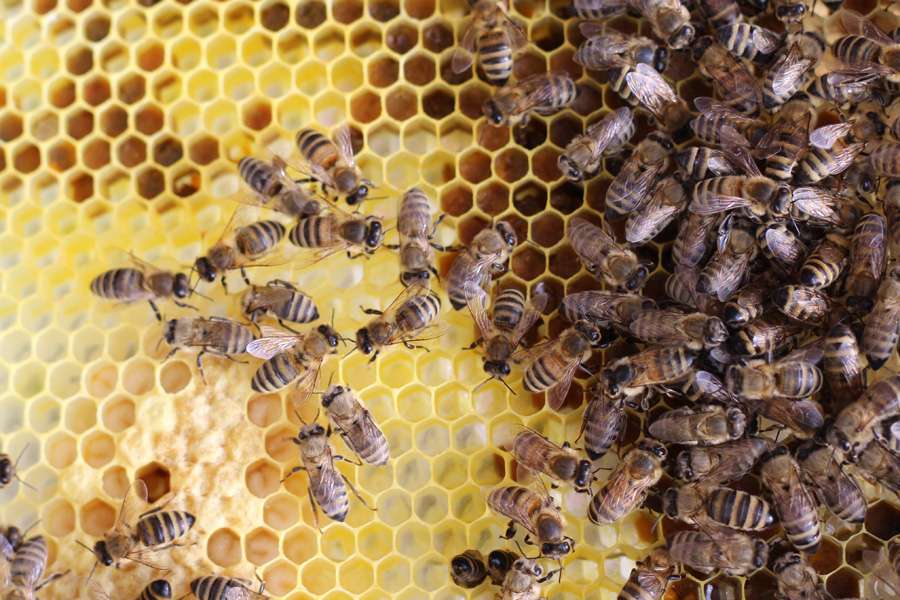Biodiversity – the endangered wonder of nature
For more organic agriculture & a world without GMO

It's buzzing at Rapunzel premises in Legau!
The people at Rapunzel think that organic agriculture is the key for a sustainable and future-proof economy where ecosystems and biodiversity are maintained and strengthened. It is our goal to produce high-quality food products without pollutants or contaminants from 100 percent organic agriculture - for healthy people and animals and a sound environment.
Organic agriculture stands for: agriculture without chemical and synthetical pesticides and without fertilizers. Instead of using pesticides against immoderate pest infestation, Rapunzel favors locallay adapted plants, the use of beneficial insects or mechanical work (shaking off and manually collecting pests, hoeing and weeding). As partner in the EU project "Partnership for Biodiversity Protection in Viticulture in Europe" we helped for example to improve the biodiversity in vineyards in the Rapunzel Turkey project.
Another example is the initiative "Poison on the field? No thanks". With this initiative, Rapunzel Managing Director Joseph Wilhelm stands up for an agriculture that protects our grandchildren's future. The goal of this initiative is to protect anaimal habitats, to promote soil life and plant diversity and to prevent the input of poisonous substances into the groundwater. On the Rapunzel premises in Legau, the Rapunzel staff looks after five bee hives. With this activity, our employees set a sign against bee mortality and for biodiversity.
For a world without GMOs
Organic cultivation also means: no use of genetically modified seeds. This protects groundwater, soil and climate and consequentially also biodiversity. Standardization of seeds, on the other hand, results in the reduction of biodiversity because GMOs are concentrated in the hands of only a few corporations (Gentechnik-Forum 2018, Sprink).
Furthermore, the new properties of genetically modified plants can spread incontrollably. The use of GMOs may also lead to unwanted resistances in crops, weeds and insects. One example in case are glyphosate resistant super weeds.
Furthermore, the new properties of genetically modified plants can spread incontrollably. The use of GMOs may also lead to unwanted resistances in crops, weeds and insects. One example in case are glyphosate resistant super weeds.
With initiatives such as "GENFREI GEHEN - march for a GMO-free world", "FOODprint" and the GMO Forum, Rapunzel actively campaigns for a world without genetic engineering. In addition, Rapunzel financially supports Save our Seeds (SOS) and IFOAM.
With the development of our seedfast "Mauro Rosso" tomato variety that was bred from organic seed we took another important step towards the independence of organic farmers from big seed monopolies and for the protection of the diversity of varieties. Because in tomato growing hybrid plants are used about 80% of the time. Compared to seedfast varieties the farmers cannot reproduce hybrid plants on their fields.
With the development of our seedfast "Mauro Rosso" tomato variety that was bred from organic seed we took another important step towards the independence of organic farmers from big seed monopolies and for the protection of the diversity of varieties. Because in tomato growing hybrid plants are used about 80% of the time. Compared to seedfast varieties the farmers cannot reproduce hybrid plants on their fields.
Until now, the UN failed to achieve their goals for the protection of biodiversity. Therefore, new goals will be set in the fall 2020 at the 15th UN Biodiversity Conference in China. For us, it is clear that any goals can only be achieved if everyone acts accordingly. It is important to stand up for biodiversity not only on the international day of species conservation on March 3rd. It already makes a difference if you eat an organic apple instead of a treated apple!
